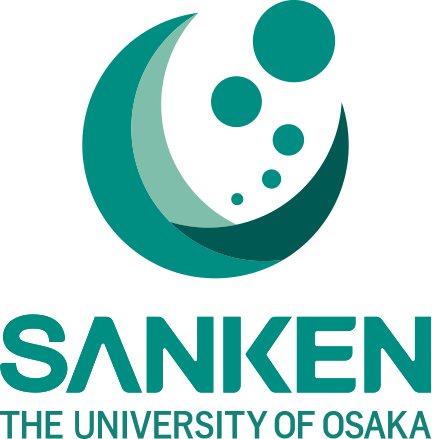The University of Osaka D3 Center and NEC Demonstrate Wide-Area Distributed Campus AI Processing Platform- On-demand use of GPU’s from Compute Servers via an Optical Network -
Tokyo, November 13, 2025 - The University of Osaka D3 Center and NEC Corporation (NEC; TSE: 6701) have jointly commenced a demonstration aimed at the application of a wide-area distributed campus AI processing platform that enables on-demand use of GPU’s from compute servers. This demonstration will leverage NEC's "ExpEther," a technology that transmits signals from IT equipment with high reliability and low latency, to build a high-performance AI processing platform that can connect and disconnect compute servers and GPUs on-demand, even when they are in different buildings across campus.

In recent years, the necessity and importance of AI analysis and utilization for vast amounts of sensitive data, such as genome data and clinical trial data, have rapidly increased. This data requires strict management, making it difficult to utilize computing infrastructure that is shared by an unspecified number of users. Therefore, there is a demand for technology that enables secure data management in a safe environment, along with on-demand access to a secure computing environment for AI analysis and utilization of the data.
NEC's ExpEther transfers PCI Express communications, which are typically conducted inside computers, over Ethernet. This enables high-speed and seamless connection and disconnection of devices such as CPUs, GPUs, and storage located at distant locations, as if they were part of a single system. This demonstration will utilize ExpEther to build a wide-area distributed AI processing platform that can connect and disconnect GPUs located in a remote data center on-demand from a research lab's compute server, and will verify its effectiveness and usefulness. Furthermore, based on the results of this demonstration, the organizations aim to establish a wide-area distributed campus AI processing platform that can safely utilize sensitive data handled by research institutes, such as the Institute of Scientific and Industrial Research, and various departments.
Outline of the Demonstration
In this demonstration, a GPU (NVIDIA H100NVL) installed as a resource pool in the D3 Center IT Core Building on The University of Osaka's Suita Campus will be connected to a compute server (Express5800/R120j-2M) located in the main building. This connection will be established using ExpEther via a 100Gbps Ethernet optical fiber. In this environment, operational checks and performance verification will be conducted, focusing on AI applications that utilize GPUs.
1. Application of a Wide-Area Distributed Computing Platform Enabling On-demand Configuration on a Campus Scale
GPUs consolidated and pooled as resources in D3 Center IT Core Building will be able to be connected and disconnected on-demand from compute servers located in remote research institutes and departments. By deploying this technology, the demonstration aims to build an AI processing platform that allows research lab compute servers to utilize remotely located GPUs on-demand.
2. Efficiency Improvement through GPU Consolidation and Sharing
Expensive computing resources such as GPUs will be centrally managed as a common resource pool, aiming to optimize university-wide capital investment, reduce resource waste, and improve GPU utilization efficiency.
Future Vision
The University of Osaka D3 Center and NEC aim to build a wide-area distributed campus AI processing platform that allows compute servers located in various buildings across the campus to connect and utilize pooled high-performance GPUs and SSDs on-demand. D3 Center also plans to offer dedicated storage services for the safe operation and management of sensitive data, such as clinical trial data and genomic information, handled by the Institute of Scientific and Industrial Research and other entities. This platform aims to achieve a secure AI processing platform that can safely utilize sensitive data by combining the strict operation of sensitive data with the dynamic system reconfigurability enabled by ExpEther. This will contribute to improving the productivity of research activities involving sensitive data. Going forward, the organizations will further deepen joint research and contribute to the creation of innovation in academic research.
NEC will organize and resolve technical issues for the application of a remote shared GPU utilization platform based on the knowledge gained from this demonstration, aiming for commercialization of the solution in fiscal year 2026.
NEC will exhibit ExpEther, utilized in this demonstration, at its booth during SC25: The International Conference for High Performance Computing, Networking, Storage, and Analysis, to be held from November 16 to 21, 2025, in St. Louis, USA.
"The wide-area distributed campus AI processing platform currently being built in this demonstration holds significant meaning for the realization of the bioinformatics platform concept promoted by The University of Osaka. Flexible utilization of high-performance computing resources is indispensable for multiple departments and graduate schools to collaborate and advance the analysis of vast amounts of data in the life sciences and medical fields. We expect that its practical application will significantly accelerate cross-departmental collaborative research and large-scale data analysis, as computing environments previously limited to individual laboratories or departments can now be safely and efficiently shared across the entire campus," said Professor Masateru Taniguchi, SANKEN (The Institute of Scientific and Industrial Research), The University of Osaka.
"This demonstration holds great significance as a potential solution to the challenge of balancing the expectations and interest in AI utilization in the life sciences and medical fields with confidential information management. By on-demand connection and disconnection of securely managed data resources and high-performance computing resources essential for future academic research, we can provide a dedicated secure AI processing platform for any research group. If the handling of sensitive data, which was previously difficult from a data security perspective, becomes possible, it will dramatically increase the productivity of academic research areas using sensitive data at The University of Osaka. This enables the promotion of new research formats for cross-disciplinary and inter-organizational collaboration, where even research using sensitive data can flexibly utilize cutting-edge AI platforms. To realize the bioinformatics platform concept, we will continue to stabilize and expand this platform, leading research innovation across the university," said Professor Susumu Date, D3 Center, The University of Osaka.

